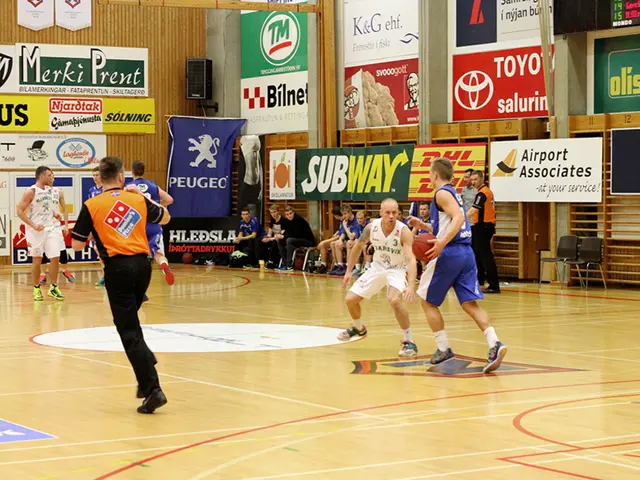United States' human rights assessment facing rejection by Berlin officials
In recent times, a heated debate has emerged between the United States and Germany over the German government's approach to combating hate speech and antisemitism.
Steffen Meyer, the German government spokesman, has defended the federal government's efforts to combat antisemitism in all its forms. He emphasized that there is no censorship in Germany, a point reiterated by Jens Spahn, the leader of the Union faction.
However, the US Department of State claims that Germany has restricted freedom of speech, primarily due to concerns about laws and enforcement measures in Germany that limit certain types of speech, including political expression by far-right groups and hate speech such as Nazi symbols. The US government criticizes these restrictions as imposing “undue” limits on free speech, perceiving them as suppressive of political dissent and critical opinions, particularly targeting parties like Alternative for Germany.
Germany's constitution guarantees freedom of speech and generally respects it, but also includes legal limits specifically designed to prevent hate speech, Holocaust denial, and incitement to violence, which are widely accepted in Europe as necessary to protect democratic values and social peace. The German government and some European observers deny that these laws constitute improper restrictions.
The dispute also reflects differing cultural and legal traditions. The U.S. has a strong tradition of very broad free speech protections under the First Amendment that tolerate hate speech, whereas Germany prioritizes preventing the revival of extremist ideologies, given its history. The U.S. critique is part of a broader diplomatic and ideological conflict where American officials view European regulations like the Digital Services Act (DSA) as overly restrictive censorship that impedes free expression.
The US government's human rights reports describe the situation in numerous countries, and according to the latest report, the situation in Germany has deteriorated, with mentions of censorship due to internet platforms being required to delete hate messages. However, the report does not assert a general denial of free speech protections by the German government, rather it points to specific human rights concerns related to hateful speech and incidents.
In 2024, the Federal Criminal Office (BKA) in Germany introduced a new category called "Other Assignment" for antisemitic crimes where the phenomenon cannot be clearly determined. Out of the 6,236 antisemitic crimes last year in Germany, 3,016 were attributed to suspected right-wing perpetrators according to BKA statistics.
The issue of antisemitism is not mentioned in the US report, but it attributes most antisemitic acts in Germany to neo-Nazis and other extremist individuals or groups. This assessment is disputed.
The news from Hamm includes a success model of cooperation between HSHL and the University in Kyiv, 100 days conclusions of the federal government's parties in Hamm, and Pedelec training of the police in Hamm. These matters are separate from the ongoing debate about freedom of speech and antisemitism in Germany.
- The heated debate between the United States and Germany involves policy-and-legislation regarding the German government's approach to combating hate speech and antisemitism, with the US Department of State criticizing Germany for allegedly restricting freedom of speech, particularly targeting political expression by far-right groups.
- The German government, however, asserts that their efforts to combat antisemitism in all its forms, including legal limits specifically designed to prevent hate speech, Holocaust denial, and incitement to violence, are necessary to protect democratic values and social peace, and do not constitute improper restrictions on free speech.








